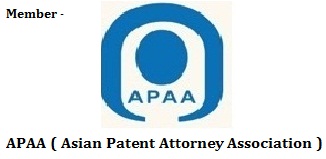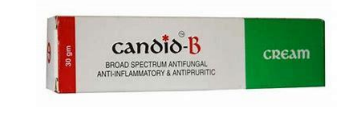
Candid – B Vs. Clodid – B
Observation by Mr. Justice Kathawalla –
“Drugs are not sweets. Pharmaceutical companies which provide medicines for health of the consumers have a special duty of care towards them. These companies, in fact, have a greater responsibility towards the general public. However, nowadays, the corporate and financial goals of such companies cloud the decision of its executives whose decisions are incentivized by profits, more often than not, at the cost of public health. This case is a perfect example of just that.”
Glenmark Pharmaceuticals Ltd. vs. Curetech Skincare and Anr., Mr. Justice Kathawalla of the Bombay High Court imposed costs of 1.5 crores against the defendant found to be ‘habitually’ committing trademark infringement of pharmaceutical products. The decision is significant for the quantum of damages awarded and the reasoning (or lack thereof) behind the award of exemplary costs. The dispute concerns Mumbai-based generics manufacturer Glenmark, and its product Candid – B (an anti-fungal cream). The principal defendant is Galpha Laboratories is the proprietor of a similar drug, selling under the trade name Clodid – B. The two products have similar packaging and trade dress, as made out from the images in the judgement. Having been nabbed for what appears to be obvious infringement, the defendant claimed that the mark was adopted by mistake, and chose not to contest the suit.
Judgement and Order as to Costs Given that the suit was not contested, the defendants submitted to the imposition of costs and prayers preferred by the plaintiff. The manner and rationale for the imposition of costs is important to examine. The Court examined the history of the defendant of committing trademark infringement. In particular, it noted the Delhi High Court’s adverse findings against the defendant in Win-Medicare Pvt. Ltd. Vs. Galpha Laboratories Ltd. & Ors. (covered here), where it noted that Galpha was a ‘habitual offender’.
Further, the Court also examined the defendant’s history of producing substandard drugs, which had been pointed out both by the Central Drugs Standard Control Organisation as well as the Maharashtra Office of the Drug Control Administration. Chastising the defendant for its practices, the Court held that it was a fit case for imposing exemplary costs, despite the fact that the matter was being finally settled in terms of the plaintiff’s prayers, and imposed costs of 1.5 Crores (which the plaintiff generously agreed to be deposited into the CM’s Kerala Flood Relief Fund).
As far as I am aware, this is the largest order of such exemplary costs in a trademark infringement case, and is particularly interesting given the compromise reached between the parties. However, the Court’s order is also notable for its examination of the public interest in preventing such undesirable practices in the pharmaceutical sector in India, which is notorious for rampant trademark malpractice, leading to significant public health concerns due to spurious drugs, something that has been repeatedly stressed by courts when assessing pharma trademark cases.
October 2017 month, the Assistant Registrar of trademarks, Chennai filed certain complaints before the JMFC, in Telangana, against four different proprietors over two common trademarks. We received information on the same through one of our readers, who also filed the RTI application in order to obtain a copy of the complaints. The complaints are notable because they indicate a rare instance of recourse to criminal remedies provided under the Trademarks Act. Recourse taken, not by private parties – but instead, by the office of the Registrar of trademarks.
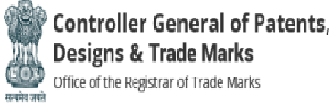
The complaints have been filed under section 115(1) of the Trademarks Act, for offences committed under section 107(1)(a) of the Act. Section 107 lays out penalties imposed under the Act, for “falsely representing a trademark as registered.” Sub-section (1)(a) penalizes the false representation of a mark as a registered trademark, when the mark is in fact, not a registered trademark. Such a false representation is punishable with imprisonment up to three years, or fine, or both. Accordingly, section 115(1) provides that a court (not below the rank of a JMFC or a metropolitan magistrate) shall only take cognizance of an offence committed under section 107, when a complaint is made in writing, either by the Registrar or any other officer authorized by him.
The complaints have been brought against four proprietors – ‘Quality Sweets & Namkeens’, ‘Kids Fun Foods India Pvt. Ltd.’, ‘Gunal Foods Pvt. Ltd.’ and ‘SRK Food Products.’ The complaints involved the common false representation of the “Kidsfun” and “Tofo” trademarks as registered via the use of the ® symbol on their packaging. The primary issue in all of the cases, was one of the following – (a) the marks that were registered were different from the marks that were falsely represented as registered via use of the ® symbol, or (b) the accused proprietors had not registered the “Kidsfun” and/or “Tofo” words per se; most had applied for the registration of the words per se, but, these were still pending registration.
This information was originally brought to the registrar’s office by a party known as ‘Rajini Food’ (hereinafter, ‘original complainant’) around August, 2016, alleging this false representation by the accused proprietors. The registrar’s office took prompt action and sent out show cause notices within a week. Soon after, final hearing(s) of the matter was scheduled. In all of the cases, neither the show cause notice nor the notice for final hearing yielded any positive results: the parties were either absent for the final hearing, or provided defenses that did not win the confidence of the registrar. This prompted the registrar to bring these complaints, especially after the original complainant graced the final hearing(s) by producing fresh evidence that the false representation was still being conducted.
To briefly go over the timeline of the events, at the cost of some repetition: The original complainant brought this information before the registrar on 11th August, 2016. The Registrar sent out show cause notices by 18th August, 2016. After allowing the parties opportunities to show cause and table their defense, the registrar’s office finally set the date for final hearing for 2nd March, 2017. None of the accused proprietors appeared for this final hearing. Finally, to “maintain the purity of the register, and to uphold legal sanctity,” the assistant registrar filed the present complaints, on the 5th of October, 2017.
This is undoubtedly a rare and significant development, notwithstanding the clear, unaccounted delay of almost six months in filing the complaint(s) before the JMFC. Despite my best efforts, I have not been able to locate orders discussing instances where the registrar has brought similar complaints u/s 115(1) r/w 107(1)(a) of the Act. Should our readers have any information on such orders/cases, I urge them to direct me accordingly. Regarding this particular case – there aren’t any orders accessible on the website at present, but we’ll keep our eyes and ears peeled for further information on the same.
New procedure that allows the Registrar to declare trademarks as ‘well known’. The new Rule 124 allows any trade mark owner to file a request in Form TM-M requesting the Registrar to declare a trademark ‘well-known’. As most of our readers may know, the ‘well-known’ tag is the ‘holy grail’ for trademark owners – everybody wants it but very few will get it.
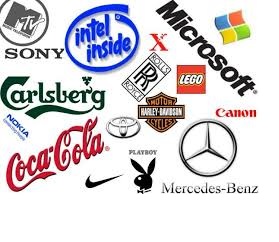
Once a trademark is declared to be ‘well known’, by a Registrar of Trademarks or a court of law, the Trade Mark Registry is bound under the law to not register any trademark that is identical or similar to the ‘well known’ trademark across all classes of goods and services. Similarly at the time of infringement proceedings, a ‘well known’ trademark can be asserted against defendants dealing in entirely different goods or services. For example, ‘Google’ has been declared a well-known trademark under Indian law, which means nobody else but Alphabet Inc. can register ‘Google’ in any of the other class where it has not already been registered by Alphabet or use ‘Google’ to sell goods or services in any industry and not just the internet industry. The commercial implications of being declared a ‘well known’ trademark are therefore tremendous.
Prior to the enactment of Rule 124, a Registrar or a court of law could declare a trademark well known only during opposition, rectification or infringement proceedings. Rule 124 however creates an entirely new procedure to recognize well known trademarks. This procedure is different from opposition, rectification or infringement proceedings in that the latter are adversarial in nature with both parties presenting evidence to back their claims and the Registrar is required to resolve these conflicting claims through a reasoned order. The trigger for these proceedings is a legal event that is not usually within the control of the trademark owner i.e. it is the alleged infringer or opponent who sets in motion the events leading to the proceedings that can result in a trademark being declared ‘well known’. The new Rule 124 allows the trademark owner to set the ball rolling without requiring any infringement or opposition proceedings. The rule does impose some vague duty to “invite objections from the general public” but this process is fundamentally different from opposition, rectification or infringement proceedings where an opposing party has already asserted its rights against the trademark owner.
The crucial question at this juncture is whether Rule 124 is constitutional? Rules, which are delegated legislation, draw their legitimacy from the parent statute. In this case the Trade Mark Rules, 2017 draw their legitimacy from the Trade Marks Act, 1999. This legislation however does not delegate to the Central Government the power to create an entirely new procedure to recognize well known trademarks. Section 157 of the Act which lays out the rule making power of the Central Government under the Trade Marks Act, 1999 is silent on the issue of well known trademarks. There is a residuary provision in Section 157(xli) that gives the Central Government the power to make rules for “any other matter which is required to be or may be prescribed”. Like all provisions conferring residuary powers, this provision is widely drafted however a residuary provision is still bound by the two most important principles of delegating legislative power: The first principle is that delegated legislation cannot be in conflict with the provisions of the parent legislation. Secondly, an essential legislative function cannot be delegated by Parliament to the Executive – the In re Delhi Lawsjudgment is quite clear on this issue. The new Rule 124, I would argue, goes against both principles. The rule reflects an entirely new policy to recognize “well-known” trademarks through a procedure that is not an adversarial proceeding (as is the case currently). In fact, the new procedure is in conflict with the adversarial procedure recognized in Section 11 for a trademark to be recognized as well known. Unlike the Section 11 procedure which required an opposition, rectification or infringement proceeding to trigger a adjudication on whether the trademark is well-known, Rule 124 allow a trademark to be recognized as well known by simply making an application to the Registry. The requirement to “invite objection” is fundamentally different from an opposition or rectification hearing because it does not guarantee a right to be heard. This entire procedure is alien to the scheme of the Trade Marks Act, 1999.
The true fear with this new procedure is that it places immense powers in the hands of the Trade Mark Registry, which as we all know is one of the more corrupt agencies in the IPO – we are all aware of Registrar’s Kasturi’s arrest and conviction on charges of corruption. The possibility for abuse of power is ably aided by some rather strange provisions in the Trade Marks Act, 1999. In particular Section 11(9) of the Trade Marks Act makes it clear that the Registrar shall not require as a condition, for determining whether a trade is well-known, any of the following, namely: (i) That the TM has been used in India; (ii) That the TM has been registered; (iii) that the application for registration of the trade mark has been filed in India; (iv) that the trade mark is well known in or registered in any other jurisdiction other than India (v) that the trademark is well-known to the public at large in India. Why should a trade mark be recognized as ‘well known’ in India if it not well known to the public at large? Isn’t that the entire point of being a ‘well-known’ trademark? Even the affirmative criteria to recognize a trademark as a ‘well-known’ trademark in Section 11(6)(i) goes against the very idea of a ‘well known’ trademark. This provision reads as follows “the knowledge or recognition of that trade mark in the relevant section of the public including knowledge in India obtained as a result of promotion of the trade mark”. Why should the trademark be recognizable only in the “relevant section of the public”? The entire point of granting “well known” trademark such vast protection is that it has attained recognition amongst a large section of the public not just a “relevant section of the public”. These provisions of the Trade Mark Act read like they have been written by a lobbyist and are begging to be amended.

NEW DELHI: Dabur has taken rival Marico to the Delhi High Court for allegedly violating trademark and copyright laws by comparing their hair oil products and denigrating its Dabur Amla in a print advertisement.
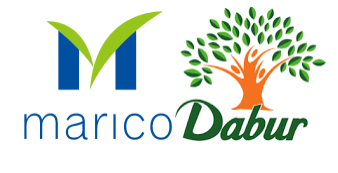
“It is a case of trademark infringement as well as disparagement of Dabur Amla,” said a person aware of the case. The court issued a notice to Marico and scheduled the next hearing for February 7, the person said.
Another person said Marico ran print ads last week that used pictures of Dabur Amla hair oil and compared it with its Nihar Shanti Amlahair oil.
Mumbai-based Marico’s consumer products include Parachute, Saffola, Nihar Naturals, Livon, Set Wet, Mediker and Revive. Dabur has a portfolio of over 250 herbal and ayurvedic products. A Dabur spokesperson declined to comment, saying the case is sub judice. A Marico spokesperson said its ad did not disparage the rival’s product in any manner.
“While the matter in question is sub judice, Marico is legally compliant with all its product advertisements and strongly believes in responsible communication,” a Marico spokesperson said in an emailed response. “In this particular case too, the advertisement factually represents the benefits of our product without disparaging the goodwill of another brand. We also have an acknowledgment on the same from the Advertising Standards Council of India.”
Metro Shoes has filed a case in the Bombay High Court alleging Flipkart is selling a private brand named Metronaut that is deceptively similar to Metro’s eponymous brand, and also alleged that the online retailer is selling shoes among other products under the brand name.

Piyush Shah, the lawyer representing Metro, said he has filed the case on Tuesday. “They are using the name of Metronaut that is similar to Metro,” Shah said. “It is a trademark infringement case.”
“Flipkart has not been aware of any such legal proceeding. If we are served notice by any court or judicial authority, we will take the necessary actions that are in the best interests of the company,” a Flipkart spokesperson said in an emailed response.
Late last year, Flipkart had launched products under Metronaut private label in men’s fashion and accessories. Currently, Flipkart sells denims, t-shirts, shirts, shoes and accessories such as belts, wallets and sunglasses under the Met .Metro operates over 200 outlets in and around 100 cities and also sells through other multi-brand stores.
BHOPAL: An additional session’s judge (ADJ) of Bhopal district court in Madhya Pradesh has summoned Facebookfounder and CEO – Mark Zuckerberg, to his court following a petition by a Bhopal based start-up alleging harassment.

Additional sessions judge Parth Shankar Mishra issued the order with directions to send the summons by email. He was hearing a civil suit filed by Swapnil Rai who runs a portal thetradebook.org, which he claims is a business networking platform.
Rai has alleged that Facebook had stopped his paid advertisement campaign to promote his ‘thetradebook’ page after running it for three days and then issued a legal notice opposing title of his portal. The campaign was run between August 8 to 14 2016 and second one was scheduled to be run between April 14 to 21, 2018.
“Second campaign was stopped wrongfully on April 16 for which a payment of Rs 215 was raised by Facebook. In the second ad-campaign there was promotion of the webpage www.thetradebook.org containing registered trademark ‘tradefeed’,” he added.
“They want to remove word ‘BOOK’ from my portal and had been sending legal notices to me causing immense mental stress,” Rai adding Facebook had been opposing their trademark application under Class 42 and Class 38 (of the Trademark Filing Classification). Rai also alleged that FACEBOOK was pressurising him to withdraw the trademark application.
On April 2016, a Noida based law firm had issued legal notice of Rai on behalf of Facebook. “The trademark FACEBOOK of our client is inherently distinctive and has been used in priority by our client in India. The word FACEBOOK does not exist in common parlance in India prior to the adoption thereof by our client. Our client was the first to use and popularise the term ‘BOOK’ in connection with social networking services. By virtue of its extensive, continues and popular use, our client owns exclusive rights to the trademark FACEBOOK. Moreover on account of the extensive, worldwide and popular use of the trademark FACEBOOK, no unrelated entity has the right to make use of the identical mark for any goods and services” – reads the notice.
The concerned law firm was contacted for their comment on this issue, but they refused to speak.
Delhi High Court through Justice Sanjeev Sachdeva vacated an ad-interim injunction granted in favour of ‘Three-N-Products’ (hereinafter, plaintiff) against two defendants back in March, 2011. The case involved the alleged infringement of the plaintiff’s trademark “AYUR” registered in Class 24 & 25 for goods such as bedcovers, textiles, shoes, boots, etc. The plaintiffs took issue with the mark “AYURVASTRA” used by the defendants in respect of goods such as sarees, dress materials, beds, etc.
he facts are simple – the plaintiffs became aware of the use of the defendants’ mark sometime around 2009. Subsequently, they addressed Cease and Desist notices to both the defendants. Thereafter, the plaintiffs noticed that the terms of these notices were not honoured and therefore instituted the present suit in 2011.
To summarise the contentions of both the parties – the plaintiffs argued that their mark “AYUR” was an invented word and had been adopted by them in 1984, and was in continuous and uninterrupted use by them since then. Further, they had spent substantial amounts of money on advertising the aforesaid mark, which is well-known as being associated with the plaintiff’s goods. Their primary contention was that the defendants’ mark “AYURVASTRA” is identical and similar to their invented mark “AYUR”.
The defendants countered these contentions by submitting that the mark “AYUR” is not an invented word, but is in fact, a generic/common word being a part of the word “AYURVEDA”. As such, the plaintiffs cannot claim exclusive rights to the word “AYUR”. Their mark is, accordingly, struck by section 17(2) of the Trademarks Act, 1999 which does not permit any proprietor to claim exclusive rights over parts of a registered trademark that are common. They further submitted that their use of the mark “AYURVASTRA” is due to the Ayurvedic dyeing techniques employed by them while manufacturing their goods i.e. clothes, which translates to “vastra”.
The court was in agreement with the contentions put forward by the Defendants. The Court held that the plaintiff’s primary contention was that the word “AYUR” is an invented word over which they had exclusive rights. However, the Court observed, “The claim of the plaintiff ex-facie appears to be incorrect. The word “AYUR” finds mentioned in the Hindu Religious Texts i.e. the Vedic Puranas, which has used the word “AYURVEDA”. The word “AYUR” signifies healthy life and the word “VEDA” signifies knowledge. The word “AYURVEDA” is a Sanskrit term comprising of two words – “AYUR‟, which means life or vital power, and “VEDA” – which means science or knowledge.” On these grounds, the Court held that the plaintiff’s mark is a generic/descriptive mark which qualifies for a lower level of protectability in the eyes of the law – when compared with arbitrary or fanciful marks. For such generic words to qualify for exclusive protection in favour of a particular proprietor, such proprietor would have to show that the mark used by them has via extensive use acquired distinctiveness and is identifiable by the public only with the said proprietor’s goods and/or services. In the present case, the plaintiff had failed to prove the same. Further, the court observed that two marks “AYUR” and
“AYURVASTRA” are entirely different in terms of getup, style, and design. On these counts, the court held that the plaintiff had failed to make out a prima facie case in their favour or even show a favourable balance of convenience. Thus, the ex-parte ad-interim injunction granted in favour of the plaintiffs all the way back in 2011 was vacated by the Court.
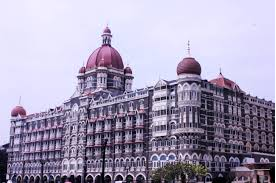
First time in India Trade Mark Registry has assigned an image of the tomb of Hotel Taj Mahal Palace l. first structure in India to get such a trademark registration , one of many firsts of this landmark of the city and takes it into an elite group of trademarked structures across the globe, enhancing its stature in the international hospitality industry. logic of applying for a trademark originated a year ago, during the tenure of former Indian Hotels (IHCL) MD and CEO Rakesh Sarna. A hospitality veteran, Mr. Sarna had brought several changes to the Taj Group, including the introduction of the brand architecture that the chain calls ‘Tajness.’
Under fast registration process , It took seven months to get the trademark. Usually, trademarks are only assigned to company logos and brands, entities that make goods or services that are bought and sold or the goods or services themselves. This is to protect these commercial entities from other commercial entities that may seek to use their goodwill and brand recognition.
Taj Hotels Palaces Resorts Safaris (which is owned by Indian Hotels, the hospitality arm of the Tata Group) by applying for the trademark, demonstrates that it believes that the very look of the building — or reproductions of it — is so recognisable that anyone attempting to replicate or use it for any commercial reason is trying to cash in on its brand, and it therefore needs to be protected. At its most basic level, the trademark means that no one — or no organisation — can make commercial use of images of the Taj Palace exteriors. without consent.
It also concedes that as far as the Indian government is concerned, the Taj Palace is the most identifiable commercial building in India, since there are many other buildings — Parliament House or Rashtrapati Bhavan to name just two — that are more widely recognised. Not to speak of historically important monuments, like the Qutb Minar or India Gate. Or the Gateway of India (20 years younger) in front of the hotel. Or, for that matter, that famous mausoleum in Agra after which the hotel is named.this enhances the Taj Palace’s place in the world: among the other well-known structures around the world with trademarks are the Empire State Building in New York City, the Eiffel Tower in Paris, and Sydney’s Opera House.
getting a trademark assigned is just one more first in the 114-year-long journey of the hotel. The story goes that Tata group’s founder, Jamsetji Tata, decided to set up the hotel after he was refused entry into Watson Hotel, which only allowed whites. The Taj was the country’s first luxury hotel built by an Indian and Bombay’s first luxury hotel.At the time of its inauguration, it was the only hotel in India with electricity. It was also the first to have an elevator, a licensed bar, an all-day restaurant and a discotheque. It has played host to leaders of the Indian Freedom movement such as Muhammad Ali Jinnah, Sarojini Naidu and many others. Lord Mountbatten, the British Raj’s last viceroy of India, announced the country’s independence from its steps in 1947.

As per new Goods and Service Tax Act,2017 , which is going to apply on 1st July 2017 , very surprising provision under the Act is 5% tax liability on the food products those have registered a trade mark under Trade Mark Act ,1999 . the purpose of the provision is to collect more tax those who are enjoying brand goodwill with premium value and collecting huge margin compared to the non – branded goods from the customers.
But the biggest controversy on this issue is one side Government of India trying to promote and secure IPR ( Intellectual Property Rights ) ata Lower level like “ MSME’s” other side this kind of provisions under the new act at GST clearly killing the I.P.R. of the MSME’s . effect of this provisions hits only the small and medium scale Entrepreneurs because big players are already paying the Tax and they don’t have any problem about this.
Another side a small and medium scale industry those have registered trademark unnecessary face the stroke of 5 % , the food industry is already on the edge of the cut through competition with the big and Multinational companies they are already paying the tax , they don’t have any effect through this provisions because they are already selling their goods with the present tax slab.
MSME’s having very small number of the resources, very less turnover they will not survive in the market competition with big industries. this provision of the GST clearly discouraging the MSMEs to protect and
develop their IPR’s like the trademark.
The Big and MNC’s will enjoy only the Intellectual Property Rights in India, that only help to indirectly initiate the Monopoly Business theory where big fish only sharp their Fins through GST where the small and medium just Cut their Fins and just swing in a small Pound like “ tadpole ” . this provision of the act is only developing a big gap between big and small. Being a trademark and IPR professional, a number of Traders, Manufacturers, and Trade Mark owner contacted us and request to withdraw all their Registered trademarks otherwise they have to out of
the game of IPR . Again the provision is it self-conflicted in term “ Registered Trade Mark” and “ Un-Registered trademark ” because the Registration of the Trade Mark Act,1999 approximate procedure time to get final registration is two- three years, is meanwhile of the process time , what this trade marks called “ Branded” or “ Non-branded ” ? this is the biggest question.
The provision on the Registered trademark food product 5% tax is clearly against the motive of the Govt. to promote MSME’s IPR ( Intellectual Property Right ) , being the cost conscious market the 5% is very difficult for the small and medium scale industries , in the food industries the business margin of the goods like tea , pulses, rice , wheat and flours etc is only 1-2 % only , in that condition the big players having rich sportswear , big ground like huge marketing network, media etc. but the small one having the local small ground where they can’t compete with the bigger one .
In short, the provision 5 % tax on the Registered Trade Mark goods under the provision of GST 2017 is itself killing the sprite of the small and medium scale industries to make capable of fighting with big and MNC’s in India though weapon of IPR . One side DIPP ( Department of Industrial Policy and Promotion ) and MSME trying to aware MSME to protect their IPR’s as weapons to fight with big competitors another side , they are trying to surrender their small business tools like their registered trade marks.
Rakesh Soni , Trade Mark and IPR Attorney
www.trademarkiso.com, 9425318625
In India trade mark act related to trademark in India was the (i ) Trade Marks Act, 1940 which had similar to the UK Trade Marks Act, 1938.
Other mile stone in the history of trade mark was Trade and Merchandise Marks Act, 1958 with changed by the the Trade Marks Act, 1999 and is the present trade mark procedures operated through Trade Mark Act ,1999.
In the Act of trade mark 1999 , logo , name , signature , mono , punch line can registered as per the procedures .
In 2004 Yahoo Inc has presented his claim for Trade Mark Registration of his jingle “ yodeling the word yahoo.” But that time there was no such registration before this but as per provisions of trade mark Act 1999 , department of the trade mark has registered the “Sound mark ” of the Yahoo.
The news rules of the Trade mark 2017 has implemented from the 6th march 2017 with some amendments in the rules and give the provision for registration of “ Sound Trade Mark in India ” through online filling on www.ipindia.nic.in .
For the registration applicant have to provide the MP3 file along with application and appropriate fees .
Following mentioned “Sound marks ” registered in India –
- ICICI Bank – (Corporate jingle – Dhin Chik Dhin Chik)
- Britannia Industries ( bell sound)
- Yahoo -(Human voice yodelling Yahoo)</>
- Cisco – (Tune under conferencing service Web Ex)
- Nokia – (Guitar sound for switch on / off )
The best option and tool to appeal the customer is sound and if it is in form of catchy jingle more appealing to the customers , like the jingles are very easy to identify the trade mark and brand name like Amul ( Elkale pakali delicious ) etc and other jingles like Cadbury are identity of the companies .










